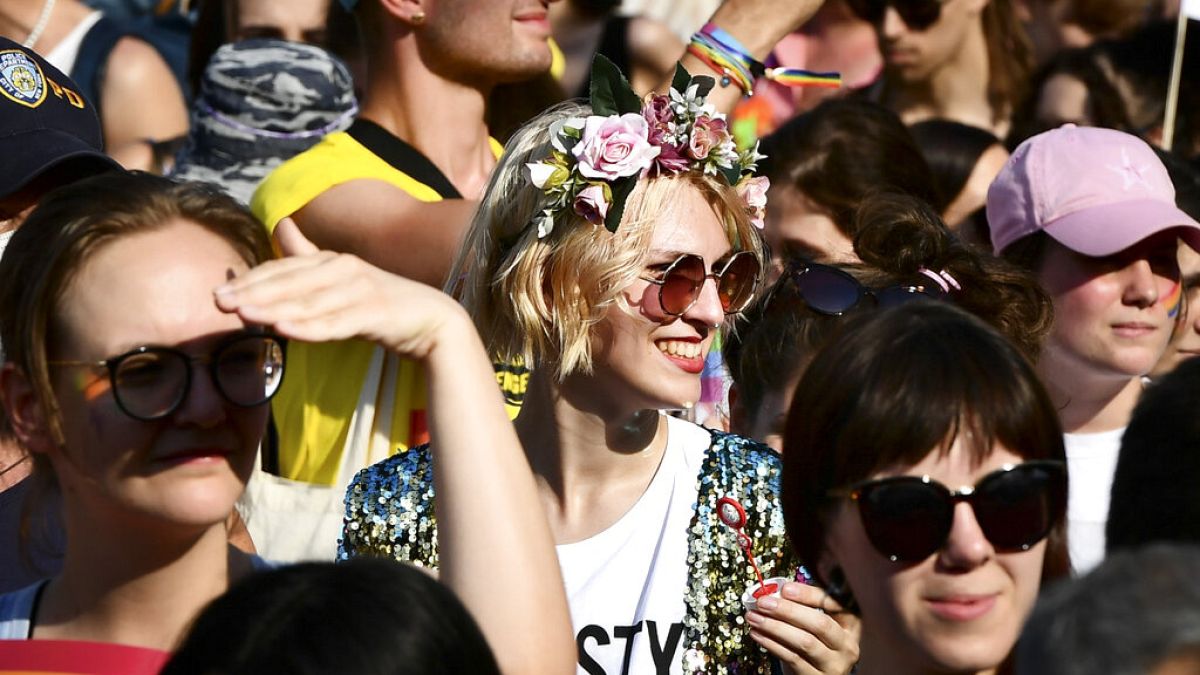Hungary's LGBT vote isn't democracy but the tyranny of the majority, writes Maria Sjödin.
Last month a law was passed in Hungary banning the “promotion” of information about LGBTIQ people to children.
Now, after fierce international condemnation, Prime Minister Viktor Orban has pledged to call a referendum on the legislation, intending to show public support for it and other purported child protection related issues.
In fact, the law and the referendum have nothing to do with the rights of children.
Instead, once again, LGBTIQ people are being used as pawns in a political power-play, threatening not only the rights of LGBTIQ people but human rights and democracy overall.
LGBTIQ people -- along with other minorities including migrants and Roma communities, as well as human rights defenders and journalists -- have come under increasing attack since the conservative party Fidesz and its leader, Orban, came to power in 2010.
In addition to the latest attack on information about LGBTIQ issues to children, over the last year the government rushed through an omnibus bill preventing transgender and intersex people from changing their gender marker on official documents and parliament adopted an amendment to the constitution effectively banning same-sex couples from adopting children.
Prior to Viktor Orban’s rise to power, Hungary was on a different track. Discrimination based on sexual orientation and gender identity were outlawed in 2004. Same-sex partnerships became a reality in 2009. Budapest hosted large, visible LGBTIQ pride events.
The drastic shift is not accidental. It is part of political-power play in which LGBTIQ people are used as pawns. This tactic is not new. Instilling fear to hold on to power is a classic move of conservative governments.
LGBTIQ people, who are among the most marginalised, misunderstood and hated communities around the world, are an easy target.
The same tactic has been used in Russia, in Poland and Turkey, Brazil, in the USA under the Trump administration and at the state level, and elsewhere.
Core to conservative movements is conservative values, including traditional marriage, narrowly defined gender roles, and religion. LGBTIQ people are positioned as somehow threatening to these values, and to society and a whole, thus drumming up hate and painting a picture of the ruling elite as saviours of the nation and its values from this perceived threat.
This, in turn, comes with regressive legal trends, such as the ones seen in Hungary now, or with other initiatives, such as the so-called LGBT-free zones in Poland, the violent crackdown on LGBTIQ people in Chechnya, mounting hate speech, and more.
Such trends have a negative impact on LGBTIQ people, giving the green light for harassment, violence, and discrimination. But not only. They undermine human rights and democracy as a whole. One of the ways we see conservative movements bring fear tactics to life is by pinning one right against another and making it seem like a zero-sum game.
For example, in Hungary, the new legislation is justified by a need to protect the rights of the child, and of families. In the US attacks on the rights of LGBTIQ people are justified with the freedom of religion.
This is a complete distortion of the very core of human rights - universality.
Human rights belong to us all, regardless of religious denomination, gender, race, sexual orientation, or any other number of distinguishing features.
Moreover, there is no hierarchy between them.
Freedom of religion isn’t more important than freedom from discrimination, rights of the child are not stronger than sexual and reproductive health and rights.
By creating an artificial hierarchy, and making it seem like recognising and protecting the rights of one, takes away the rights of another, governments like Hungary’s are not only marginalising LGBTIQ people, they are also undermining the entire human rights system.
Democracy is at risk too. In an interview with BBC’s HardTalk, Hungary’s Minister of Foreign Affairs Péter Szijjártó said that putting the question of whether information about LGBTIQ issues should be available to children to the people is a core democratic process.
And yet it is the opposite - what he is describing is the tyranny of the majority. A core element of democracies is the protection of the rights of minorities. Without minority rights, without freedom of expression of dissenting opinions, without freedom of assembly of unpopular groups, without the belief in equal opportunities for everyone, democracies become autocracies.
The Hungarian government is using a quintessentially democratic process -- the referendum -- to pursue thoroughly undemocratic aims - the oppression of a minority group for the pursuit of power.
This is dangerous. Not just for LGBTIQ people, but for everyone. And we must speak out against it. It is great to see international condemnation of the growing attack on rights and civil liberties in Hungary. It should not relent.
The unfolding situation is also a reminder that we cannot take rights and progress for granted, and we in civil society have to fight to protect what we have in addition to fighting for further change.
_Maria Sjödin is Deputy Executive Director of OutRight Action International, one of the oldest global organisations working for the human rights of LGBTIQ people. Maria is originally from Sweden and has over 20 years of experience advocating for LGBTIQ equality. _
